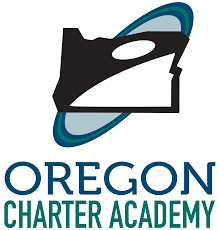Reporter for The Canyon Weekly
Trial scheduled for Jan. 8, 2024
The second phase of the wildfire lawsuit against PacifiCorp is now set to begin in January. The judge has rejected the company’s request to delay proceedings while they exhaust their appeals.
During a hearing Sept. 8 in James et al vs. PacifiCorp, Multnomah County Circuit Court Judge Steffan Alexander ruled against company’s request for a stay of the damages phase of the suit.
He told defendants it could take untold years to resolve appeals and the requested delay would be indefinite. Alexander also upheld an argument by plaintiffs that any appeals could still resolve as the case proceeds.
He then set the first Phase 2 trial to begin Jan. 8, 2024. In that trial 10 to 15 class members out of a remaining 5,000 plaintiffs will have damage claims decided by a jury.
Similar trials were scheduled for February and April, followed by class-wide mediation for remaining claims.
Alexander said these bellwether trials would help gather information about the strength of pending claims and the potential for jury awards, helping parties reach potential settlements. If trials continued after mediation, he said these proceedings would benefit from “a much more refined process.”
A case management order formally outlining this plan was set to be approved today.
PacifiCorp is appealing a June 12 jury verdict that found the company responsible for the Santiam, 242, Echo Mountain and Obenchain fires, which sparked Labor Day 2020. The jury awarded $90 million to 17 named plaintiffs after finding PacifiCorp negligently mismanaged its electrical grid during historic heat and wind events.
PacifiCorp has repeatedly denied wrongdoing and promised to appeal the verdict, as well as any verdicts in plaintiffs’ favor during Phase 2.
Their opposition includes a pending motion to vacate the June 12 verdict, claiming the jury’s decision was illegal and improper. A hearing is set before Alexander on Dec. 1 to argue the matter.
Phase 2 was initially expected to involve special masters, often retired judges who use a less-formal process than a trial to resolve complex cases quickly. Negotiations over this process fell through when PacifiCorp rejected a proposal by plaintiffs to set a minimum payout of $3 million per class member.
The company asserted its right to trial by jury, taking special masters off the table. The court was then presented with two vastly different plans by the parties.
Plaintiffs proposed a series of mini trials that would resolve an estimated 75 claims every 60 days, which would require more than a decade to adjudicate all 5,000 pending claims.
PacifiCorp proposed using bellwether trials followed by forced mediation, with the goal of promoting out-of-court settlements. It said plaintiffs for the trials should be chosen at random to avoid prejudicing the jury, which would require all class members to submit claims forms to the court before Phase 2 began.
Alexander’s Sept. 8 ruling was a compromise. He accepted PacifiCorp’s plan for bellwether trials and mediation, but rather than randomized claimants he allowed plaintiff attorneys to pick groups for the trials.
Among the three trials set, the proceedings in January and February were for plaintiffs directly represented by class attorneys. The April trial was for lawsuits filed last year by Freres Timber Inc. and C.W. Specialty Lumber Inc., which were later consolidated with James et al vs. PacifiCorp.




